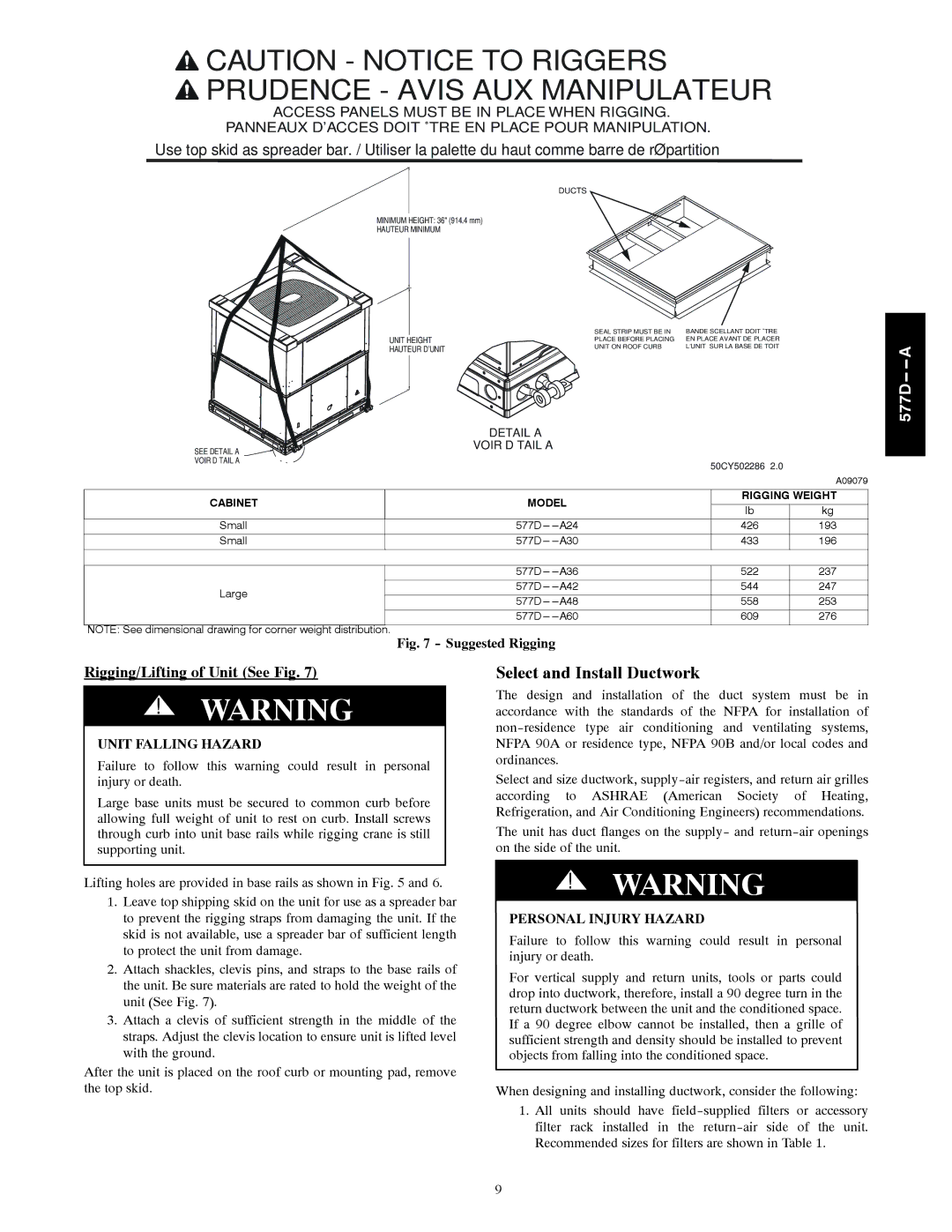577D----A specifications
The Bryant 577D----A is a highly regarded model in the HVAC industry, representing a blend of efficiency, performance, and advanced technology. This heating and cooling unit is designed to cater to a variety of residential and light commercial applications, making it a versatile choice for consumers looking to enhance their indoor climate control systems.One of the standout features of the Bryant 577D----A is its impressive energy efficiency rating. With a Seasonal Energy Efficiency Ratio (SEER) typically exceeding 14, this model is engineered to reduce energy consumption, helping homeowners lower their utility bills while minimizing environmental impact. The unit also employs a two-stage cooling system, which not only improves comfort by maintaining more consistent temperatures but also provides enhanced dehumidification during hotter months.
The technology used in the Bryant 577D----A is noteworthy. The unit incorporates a variable-speed compressor that adapts to the specific cooling or heating needs of the space, ensuring optimal performance at all times. This advanced feature not only contributes to energy savings but also allows for quieter operation compared to single-stage systems. The inclusion of a smart thermostat integration further enhances convenience, enabling users to manage their HVAC system remotely and optimize settings according to their schedules.
Additional characteristics of the Bryant 577D----A include a durable construction designed to withstand various environmental conditions. The cabinet is made from quality materials that protect against corrosion and other factors that could affect the unit's longevity. Furthermore, the unit operates quietly, thanks to sound-dampening technologies, which is a significant advantage for residential areas where noise can be a concern.
Maintenance is also simplified with the Bryant 577D----A, as it is equipped with self-diagnostics for easy troubleshooting. This feature alerts users to potential issues before they escalate, promoting efficient operation and prolonging the lifespan of the system.
In conclusion, the Bryant 577D----A stands out as a superior choice for those seeking reliability and efficiency in their HVAC solutions. With its energy-efficient operation, advanced technologies, and robust construction, it serves as a valuable investment for homeowners committed to comfort and sustainability.

